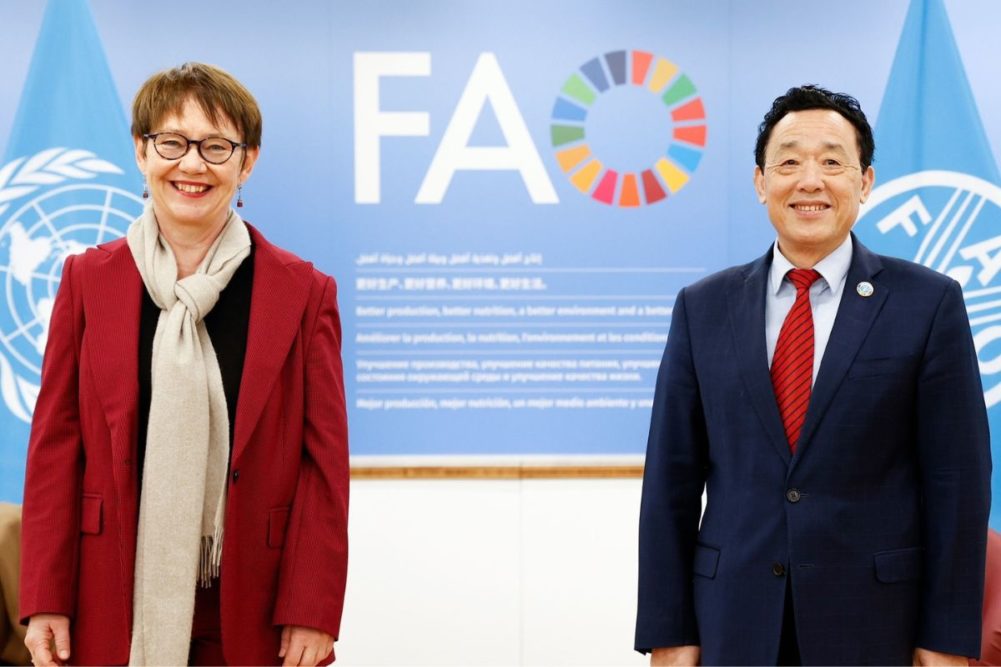ROME, ITALY — The European Bank for Reconstruction and Development (EBRD) and the Food and Agriculture Organization of the United Nations (FAO) on Dec. 20 launched a new $5.5 million food security technical assistance program to upgrade grain infrastructure in Egypt, Jordan, Lebanon, Morocco, Tunisia, the West Bank and Gaza as part of its 25th anniversary celebration.
Odile Renaud-Basso, president of the EBRD, met with QU Dongyu, director-general of the FAO, at the FAO headquarters in Rome, where they planted an olive tree as a symbol of the long-term cooperation between both organizations.
“We are proud of the work done together with FAO in the past 25 years, and we will continue to strengthen our cooperation in the foreseeable future,” Renaud-Basso said. “Boosting food security is one of the EBRD’s priorities, and, together with FAO, we are able to put our joint expertise in finance and technical solutions to the benefit of the regions where we both operate. The new technical assistance program in the Southern and Eastern Mediterranean is the latest example.”
The joint food security initiative, which will kick off in January, is in response to the crisis in grain markets, which has made global food security more precarious. The initiative will help governments revisit some of their agrifood policies, for example, by improving long-term resilience of the grain value chain.
The package supports public and private investments in upgrading national grain import systems, including the development of more efficient procurement and better storage infrastructures. The initiative also will help countries reassess their own food production potential, looking at climate and environmental constraints and maximizing the value of local production, including through trade diversification.
This new technical assistance package complements the EBRD’s individual financing for these countries. Tunisia, for example, has received a $150.5 million loan to buy cereals in the face of the global markets’ crisis.
“Transforming agrifood systems calls for a range of technical solutions, enabling policies and investment” QU said. “Together with the EBRD and other partners, FAO has been supporting Members to move forward on these three fronts simultaneously to ensure the Four Betters: better production, better nutrition, a better environment and a better life for all, leaving no one behind.
“FAO looks forward to stepping up its 25-year partnership with the EBRD for even stronger collaboration to achieve the Sustainable Development Goals (SDGs).”
The FAO and EBRD, based in London, England, started their cooperation in 1997, paving the way for 200 joint technical assistance projects worth $60 million. The joint efforts have been focusing on supporting the development of sustainable agrifood value chains in Eastern and Central Europe, Central Asia, and the Southern and Eastern Mediterranean, combining FAO’s technical and policy facilitation skills with EBRD’s investment capacity and expertise.
Recently the EBRD and the FAO have worked together on analyzing and understanding the ongoing global food security challenges and their impact on specific countries and regions. The two institutions also organized several events to promote global dialogue on food security, including a panel at the EBRD’s 2022 Annual Meeting, a joint event with the World Trade Organization and a panel at COP27 in Egypt.



